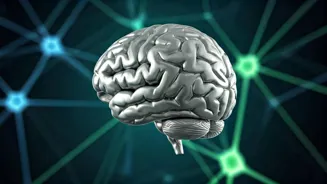Memory Exercise 1
The first beneficial activity is focused on improving memory, and it is called 'Remembering Lists.' This involves creating lists and making a conscious
effort to recall them. Initially, start with smaller lists and gradually increase the length. This helps improve memory retention. You could, for example, begin by memorizing a grocery list, then try recalling the items in the order they were written. Over time, you can create more complex lists, such as a list of tasks or appointments. Practicing this activity consistently will help in boosting memory capacity, making it easier to recall information from memory, thus promoting the overall sharpness of the mind.
Memory Exercise 2
Next in line is an activity that is aimed at enhancing focus, called 'Focused Meditation.' Find a quiet space and allocate a few minutes to focus solely on your breath. As thoughts drift in, acknowledge them without judgment and gently bring your attention back to your breath. Regularly practicing focused meditation helps in developing the ability to concentrate, which in turn strengthens memory. This improves attention span, making it simpler to absorb and retain information. Starting with a few minutes a day, gradually increase the duration as comfort and concentration increase. Regular meditation helps calm the mind and improve mental clarity.
Memory Exercise 3
The third exercise concentrates on improving the memory with the 'Mental Visualization' technique. This exercise involves creating vivid mental images. Close your eyes and imagine various scenes or objects in detail. This practice strengthens your memory through visual association. You can visualize everyday objects, such as a favorite food, or more complex scenarios, like a walk in the park. The more detailed the images, the better. Making a regular habit of mental visualization enhances memory by linking new data to pre-existing memories and enabling easier recall. Consistent practice improves the brain’s ability to process and recall information.
Memory Exercise 4
Here is a different activity aimed at improving brain health: 'Crossword Puzzles and Sudoku.' Regularly engaging in crossword puzzles, Sudoku, or other word games can significantly boost cognitive function. These activities require problem-solving skills and mental flexibility, crucial for keeping the brain sharp. Try tackling different levels of difficulty to challenge your mind continuously. The brain thrives on new challenges; therefore, playing these games helps promote cognitive flexibility, improving memory. Doing these puzzles provides a fun and engaging way to keep the mind active. Making word games a part of your regular routine can also help maintain cognitive abilities.
Memory Exercise 5
The fifth activity helps to enhance memory and coordination: 'Physical Exercise'. Engaging in regular physical activities is vital for brain health. Exercise increases blood flow to the brain, delivering essential nutrients and oxygen. Activities such as brisk walking, swimming, or yoga are all beneficial. Aim for at least 30 minutes of moderate-intensity exercise most days of the week. Physical exercise has been shown to improve memory, focus, and overall cognitive performance. By including regular physical activity into the daily routine, seniors can enhance brain function and enhance cognitive functions.
Memory Exercise 6
The next exercise concentrates on enhancing memory, called 'Learning Something New'. Keeping the mind active is very important, therefore, start learning something new every day. This could be a new language, a musical instrument, or even a new skill. Learning stimulates the brain and creates new neural pathways, which enhance memory and cognitive abilities. The key is consistency; the more you learn, the sharper your mind will become. Consider joining a class or using online resources to explore your interests. Embrace lifelong learning, and you will see improvements in your cognitive abilities and memory.
Memory Exercise 7
The seventh activity is geared towards enhancing memory and brain health: 'Social Interaction'. Social engagement is crucial for maintaining brain health and memory. Spending time with others, participating in social activities, and having regular conversations can help to keep the mind active and reduce the risk of cognitive decline. Make an effort to stay in touch with friends, family, and community members. You can join clubs, volunteer, or participate in group activities. Consistent social interaction helps to improve cognitive function and memory by stimulating the brain and providing opportunities for mental and emotional engagement, thus promoting the overall mental well-being.
Memory Exercise 8
The last exercise, 'Healthy Diet', is extremely important for brain health and memory. A balanced diet rich in fruits, vegetables, and whole grains provides the brain with essential nutrients and antioxidants. Try to limit processed foods, sugary drinks, and excessive fats, as they can negatively impact brain health. Include foods known to boost brain function, such as fish rich in omega-3 fatty acids, berries, and nuts. Consuming a nutritious diet supports cognitive function, memory, and overall well-being. Prioritizing a healthy diet is a powerful way to optimize brain health and maintain cognitive sharpness.



















